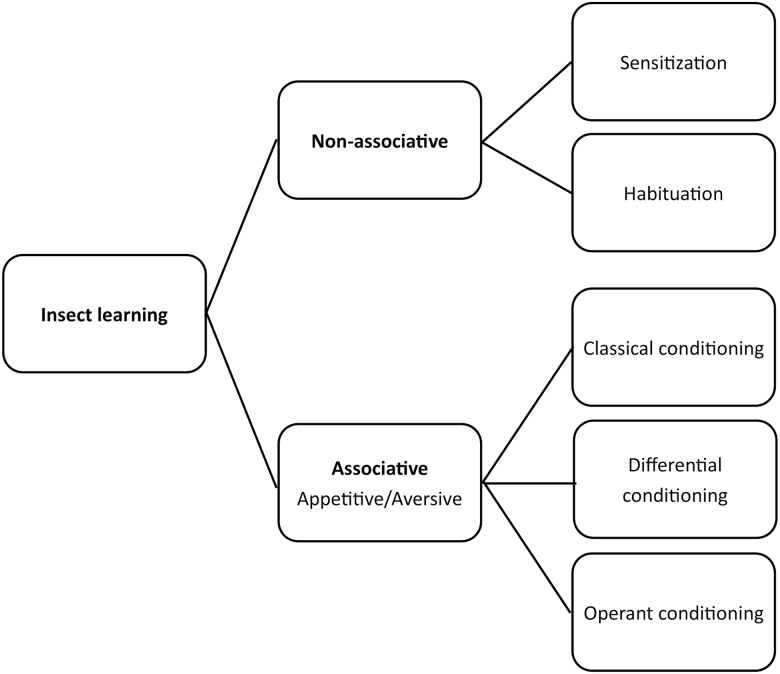Fig. 1.
Forms of insect learning. Even a single exposure to a stimulus without an associated reward or punishment can induce a familiarization effect. These non-associative conditioning events can enhance sensitivity (sensitization) resulting in increased response to innately attractive stimuli or in reduce sensitivity (habituation) resulting in decreased avoidance of innately repellent stimuli. Associative conditioning occurs when exposure to a stimulus precedes or occurs concurrently with a positive (appetitive conditioning) or negative (aversive conditioning) reward experience. Classical (Pavlovian) conditioning occurs when the induced behavioral response is involuntary or reflexive (proboscis extension in honeybees, salivation in dogs). In contrast, operant conditioning occurs when the induced response is a modifiable behavior. Differential conditioning combines any of the preceding conditioning paradigms or involves differing reward values for differing stimuli.

